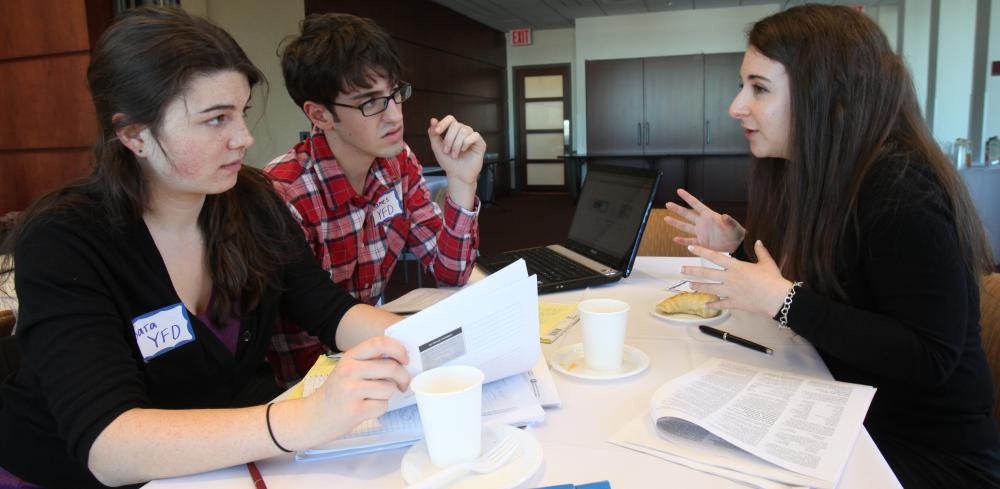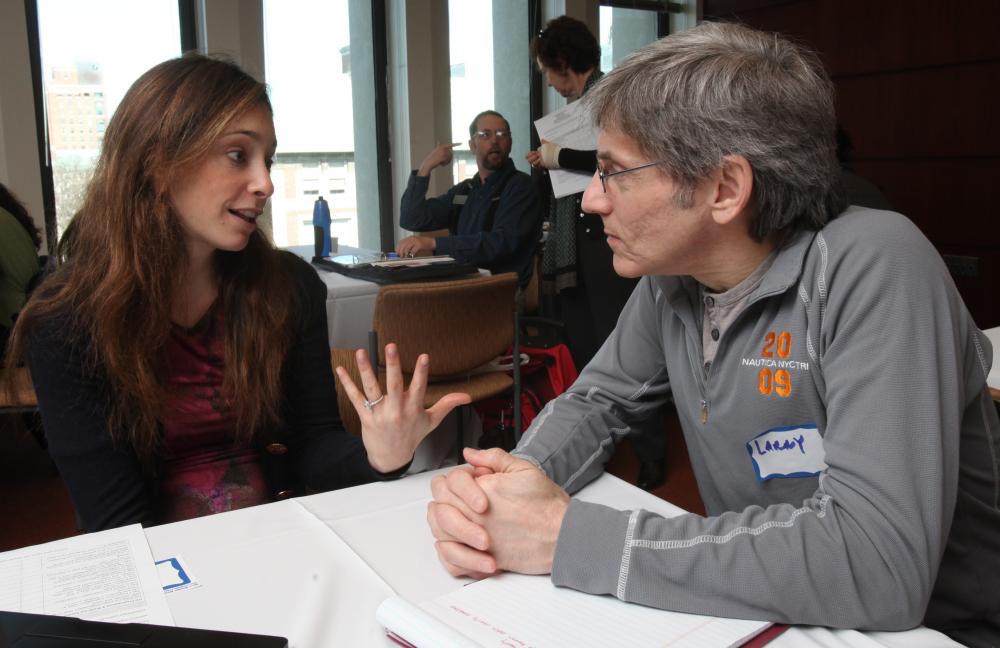Community Enterprise Clinic Students Hold Workshop for Nonprofits Seeking Legal Help
Workshop for Nonprofits Seeking Legal Help
Public Affairs, 212-854-2650
New York, June 30, 2011—When it comes to starting a nonprofit organization, good intentions are not nearly enough.
That's where the Community Enterprise Clinic at Columbia Law School comes in. The clinic held a three-day workshop at the end of the spring semester for eight new Manhattan-based nonprofits to advise them on such topics as understanding the legal structures of their organizations, how to form a corporation, and federal tax exemption.
“It’s a chance to help these organizations to get off to a healthy start and enable them to thrive,” said Barbara Schatz, Clinical Professor of Law and faculty adviser for the year-long clinic. The goal of this clinic is to help students to become effective and ethical lawyers by providing
high-quality transactional representation to both kinds of organizations.
The clinic, at capacity for its full representation services and eager to increase access to its resources, began the workshop as a balance between complete legal services and strictly informational sessions. The organizations selected for the workshop came through Morningside Heights Legal Services, Inc., the legal body under which the Law School clinics operate.
The groups focus on various aspects of education, the arts, and international service programs. They include the Levitt Comninos Carlotti Foundation, which provides financial and emotional support to college-bound students who have lost a parent or have a terminally ill parent; Youth for Debate, where Columbia College students teach debate to younger students; and Impact Abroad, which sends volunteers to China to teach English to disadvantaged children.
(left: Clinic student and recent graduate Carol Brass '11 with Youth for Debate representatives)
Each of the three workshop meetings included presentations with step-by-step instructions given by pairs of students from the clinic. The students then met with representatives of the organizations to help them fill out tax-exemption forms, draft by-laws, and prepare certificates of incorporation.
“It was tough but we all rose to the challenge,” said Cherice Landers '12. “We are trying to empower these people with the tools themselves and teach them so they can do the work going forward.” Landers worked with the Institute for Responsible International Service, an organization that trains volunteers to be socially conscious during their international service trips.
Though the clinic made clear in its workshop agreement form that it is not serving as a lawyer for any of the groups, Schatz said the students provided invaluable guidance and support. “The workshops not only helped the participants; they also gave the students experience in identifying and doing something about an access to legal services problem,” said Schatz.
The Community Enterprise Clinic, founded in 1986, aims to help students become effective and ethical lawyers in providing high-quality legal assistance to nonprofit organizations and small businesses.
(left: Clinic student and recent graduate Nessia Sloane '11 with Larry Giantonio, the founder of a new theater company)
Columbia Law School, founded in 1858, stands at the forefront of legal education and of the law in a global society. Columbia Law School joins its traditional strengths in international and comparative law, constitutional law, administrative law, business law and human rights law with pioneering work in the areas of intellectual property, digital technology, sexuality and gender, criminal, national security, and environmental law.
Visit us at http://law.columbia.edu.
Visit us at http://law.columbia.edu.
Follow us on Twitter http://www.twitter.com/columbialaw.

